10 Best Supplements for Weight Loss, Doctors Say

If you want to lose weight, there’s no getting around it: A healthy diet and regular exercise routine are a must. Sleep more, drink less, surround yourself with a good support system, and you could just unlock long-term success. However, when used in conjunction with a healthy lifestyle, certain weight-loss supplements may also be beneficial in helping you reach your goals, doctors say.
It’s important to note that any time you begin taking a new vitamin, you should do so after consulting with your healthcare provider. Supplements can interact with other supplements or medications and worsen certain medical conditions.
Still, experts suggest that certain supplements could help you jumpstart your new health routine and tip the scales in your favor. Here are their top 10 recommendations for supplements that can help you lose weight.
RELATED: Eating These 12 Foods Can Burn Belly Fat Fast, Nutritionists Say.
1
Green tea extract

Green tea has many known health benefits, including lowering the risk of chronic illnesses such as heart disease, diabetes, and certain types of cancer. It can also help you lose weight.
“Green tea is packed with antioxidants and nutrients that have powerful effects on the body. The extract increases fat burning and improves physical performance, making it an excellent supplement for weight loss,” Dev Batra, MD, an interventional radiologist at Texas Vascular Institute, tells Best Life.
“Consuming green tea, or green tea extract, contains components that may help to mildly boost metabolism and promote fat burning,” agrees Megan DeChatelets, RDN, CDN, a registered dietician working with the natural supplements company Hilma.
In fact, a 2013 study published in the Journal of Research in Medical Sciences found that “drinking four cups of green tea led to a significant reduction in weight and systolic blood pressure” among diabetic patients.
2
Berberine

This supplement flew under the radar for a long time, but it’s now been dubbed “nature’s Ozempic.” And while experts agree that berberine isn’t a magic weight-loss pill, they do say there are some benefits that it can provide.
Trista Best, RDN, LD, a registered dietitian at The Candida Diet, recently spoke with Best Life about berberine: “It has been found to improve insulin sensitivity, reduce fat accumulation, and regulate blood sugar. It has also been found to support the gut’s microbiome and thereby reduce inflammation. These positive effects all indirectly support weight loss efforts.”
Michael Chichak, MD, medical director at MEDvidi, added in our interview that berberine also stimulates an enzyme called AMPK (adenosine monophosphate-activated protein kinase), which helps regulate metabolism.
RELATED: This Food Can Trigger a 15% BMI Weight Loss—But You’re Probably Not Eating It.
3
Protein
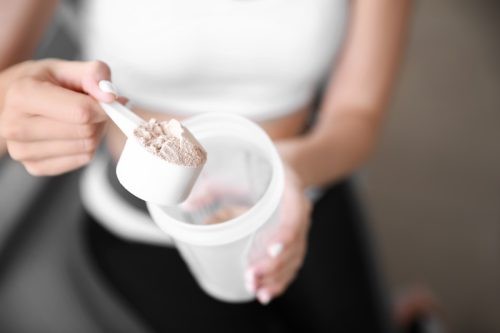
Though it’s best to get lean protein sources from your diet—chicken, fish, or beans and legumes, for example—taking a powdered protein supplement can also help you lose weight, experts say.
“Protein is essential for building and repairing tissues, including muscles,” explains Batra. “Increasing your protein intake can help you feel fuller for longer, reducing overall calorie intake. It also boosts your metabolism, aiding fat loss while preserving lean muscle mass.”
4
Vitamin D
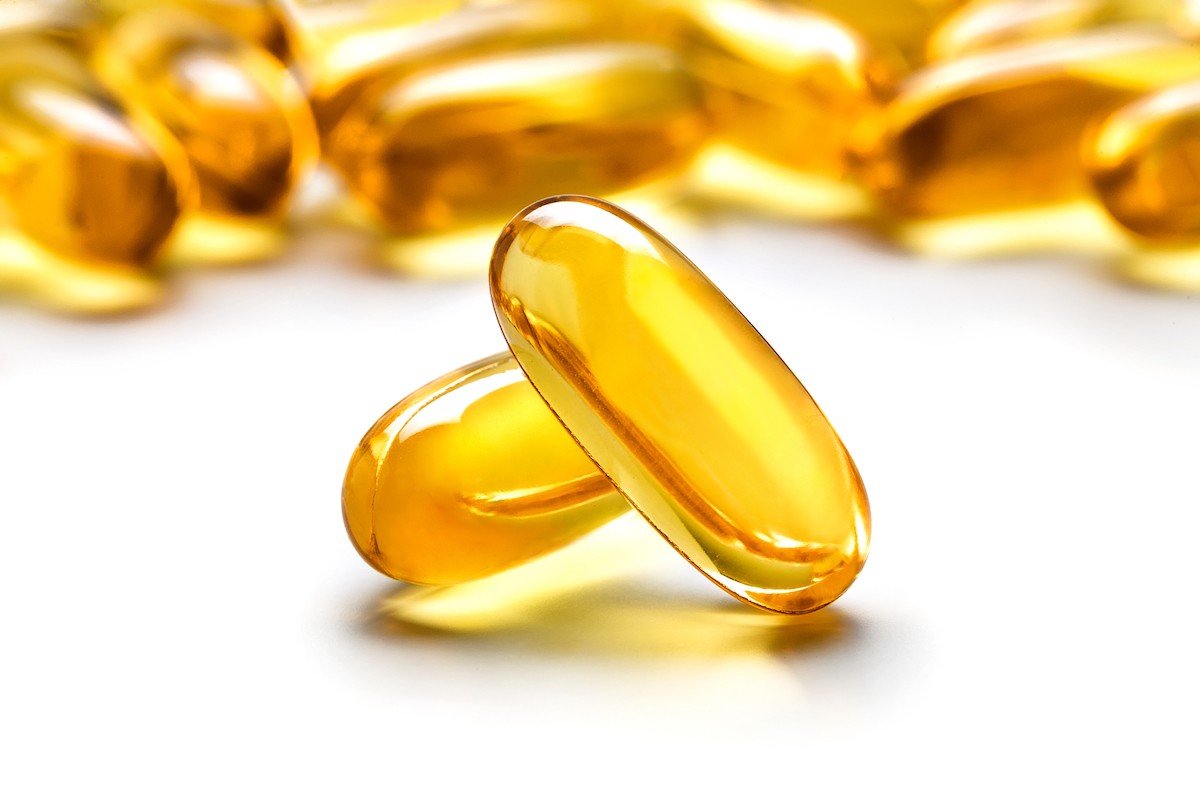
A vitamin D supplement also has many benefits: “Its anti-inflammatory, antioxidant and neuroprotective properties support immune health, muscle function and brain cell activity,” says Mayo Clinic.
Batra points out that “low levels of vitamin D have been associated with weight gain and obesity.”
To his point, Medical News Today reported on a study that found that people with higher vitamin D levels had more success losing weight.
“Our results suggest the possibility that the addition of vitamin D to a reduced-calorie diet will lead to better weight loss,” said Shalamar Sibley, MD, MPH, an assistant professor of medicine at the University of Minnesota and the study’s lead author.
RELATED: 21 Surprising Signs You Have a Vitamin Deficiency.
5
Akkermansia

Akkermansia muciniphila is a gut-friendly bacteria naturally found in your microbiome. Following research that connects this probiotic to weight loss, it’s becoming more readily available over the counter as a supplement.
Raj Dasgupta, MD, a medical reviewer for the National Council on Aging (NCOA) and an ABIM quadruple board-certified physician specializing in internal medicine, pulmonology, critical care, and sleep medicine, spoke with Best Life last year about Akkermansia’s benefits.
“Akkermansia muciniphila is a probiotic that could help with weight loss by strengthening the gut lining, reducing inflammation, and boosting the production of beneficial substances like butyrate, which can help control appetite and improve blood sugar levels,” he explained. “This could help regulate appetite and improve glucose metabolism, potentially helping with weight management.”
6
Fiber
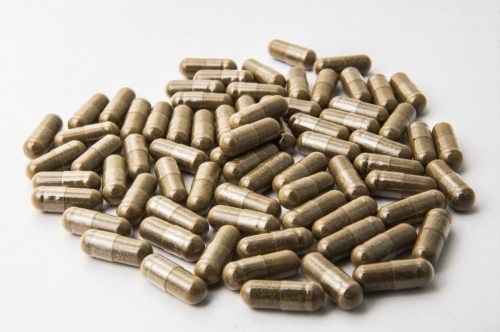
High-fiber diets have long been linked to weight loss, and some experts say that fiber supplements could have similar benefits.
“Fiber supplements, especially those containing soluble fiber sources…can help you feel full and therefore reduce calorie intake,” explains DeChatelets. “Further, they help to support a balanced gut microbiome, which is extremely important for maintaining a healthy weight.”
As GoodRx explains, a healthy gut microbiome “influences how food is digested and absorbed and how dietary fats are stored in your body.” It also “may also impact the production of hunger hormones, such as ghrelin, which control if you feel hungry or full.”
RELATED: 6 Best Walking Workouts for Weight Loss.
7
Elderberry

You probably associate elderberry with its immune-boosting abilities, but new research links it to weight loss, too.
A recent study published in the journal Nutrients found that regularly drinking elderberry juice can enhance metabolic health in three ways:
- Lowering “bad” gut bacteria and raising the presence of “good” bacteria
- Reducing blood glucose levels
- Increasing fat oxidation (or fat “burn”)
As Best Life reported, “According to Cleveland Clinic, anthocyanins are a type of flavonoid (or plant-based compound) with antioxidant properties that occur naturally in purple fruits and vegetables. They can help reduce inflammation, lower blood pressure, and generally help relieve oxidative stress on cells.”
Although this study focused on elderberry juice specifically, elderberry supplements are also widely available in the U.S.
8
Chromium picolinate

Chromium picolinate is another supplement that may aid in weight loss. According to Mount Sinai’s Health Library, 90 percent of diets are deficient in this mineral.
As DeChatelets explains, this particular supplement may help regulate blood sugar levels and reduce cravings, especially in those who are deficient. “Stable blood sugar levels are important for weight loss as it allows your body to more efficiently utilize fat for energy between meals,” she notes.
While Chromium from food is widely considered safe, it can be dangerous in excessively high doses when taken as a supplement.
“As a supplement, very high doses of this mineral can reduce how effective insulin is at controlling blood sugar and cause stomach irritation, itching, and flushing,” Mount Sinai experts write. “There have also been rare reports of fast, irregular heart rhythms and liver problems from too much chromium. Kidney damage has also been reported from the use of chromium picolinate supplements.”
RELATED: 9 Best Weight-Loss Teas, According to Nutritionists.
9
Creatine
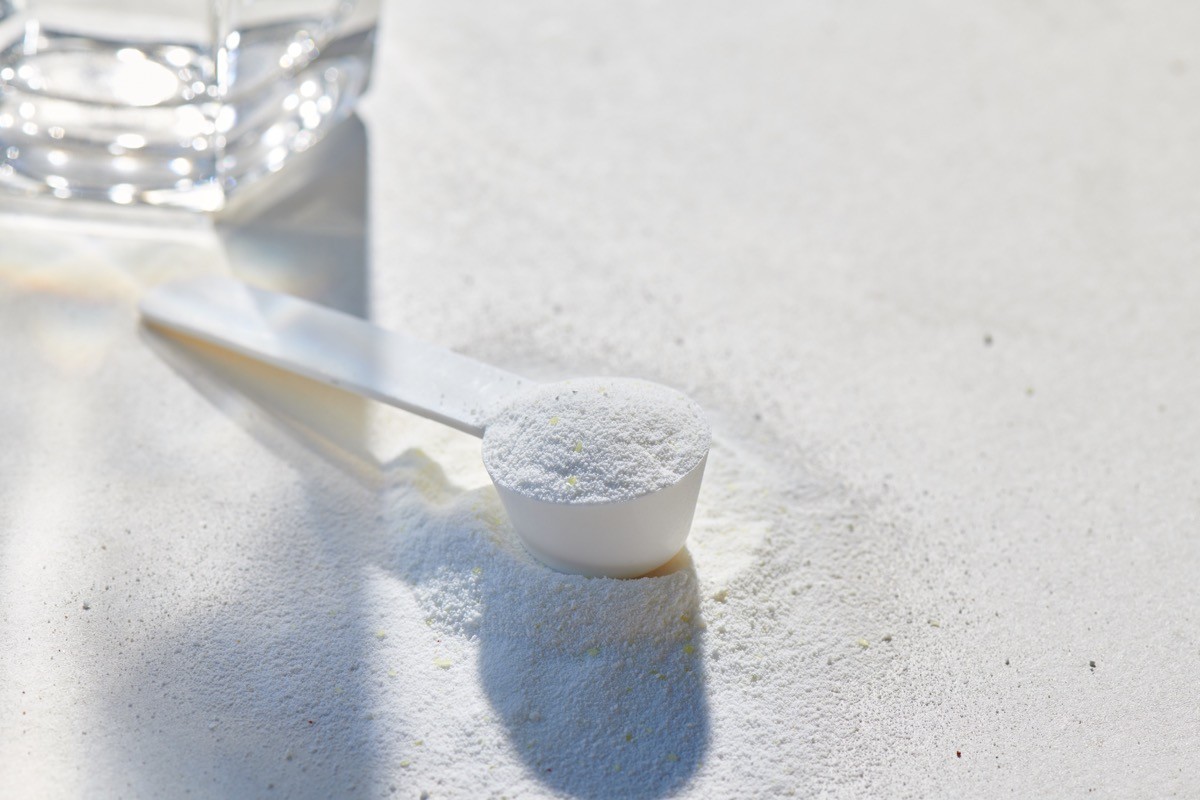
Many people take creatine supplements to lose weight and increase their lean muscle mass.
“Creatine can be a beneficial supplement for improving body composition. It helps to pull water into the muscles, potentially increasing workload capacity and contributing to muscle growth,” explains DeChatelets. “It may aid muscle repair and reduce muscle breakdown. Increased muscle mass can ultimately lead to improved body composition and fat loss by increasing resting energy expenditure.”
10
Apple cider vinegar
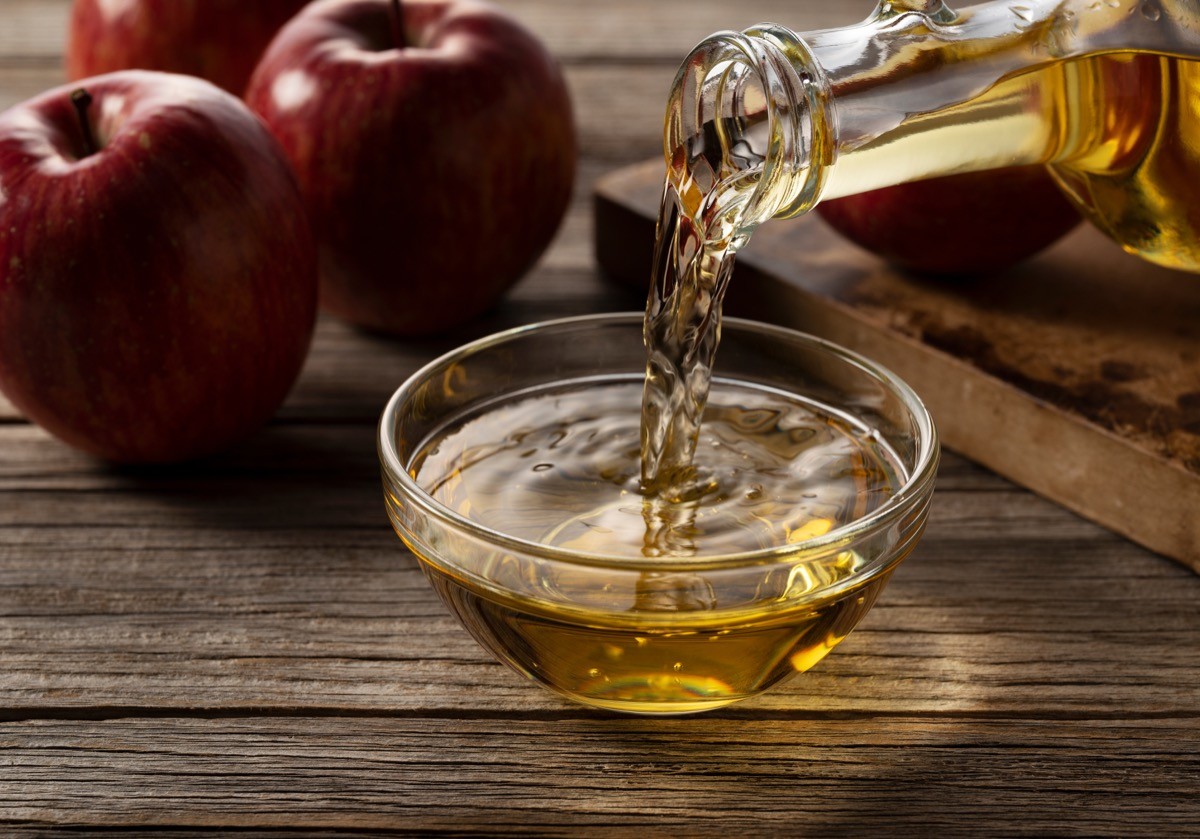
There’s no shortage of claims about the benefits of apple cider vinegar (ACV)—and many of them have been debunked. However, new research suggests that there’s one science-backed benefit to taking ACV on a regular basis.
A 2024 study published in BMJ Nutrition, Prevention, and Health, found that taking a tablespoon of apple cider vinegar before eating may help you lose weight.
The study, which recruited 120 obese and overweight participants, found that those who took ACV before meals lost up to 18 pounds during the 12-week study period. Besides reducing subjects’ body mass index (BMI), it also lowered triglyceride and cholesterol levels.
“The results of our study suggest that incorporating apple cider vinegar into the diet could be a beneficial adjunctive therapy for weight management,” Rony Abou-Khalil, PhD, a co-author of the study, told Medical News Today.
“Healthcare providers may consider recommending [apple cider vinegar] supplementation as part of a comprehensive weight loss program, alongside dietary and lifestyle modifications,” he said, noting that further research is needed to confirm the study’s findings and “determine the optimal dosage and duration of [apple cider vinegar] supplementation.”